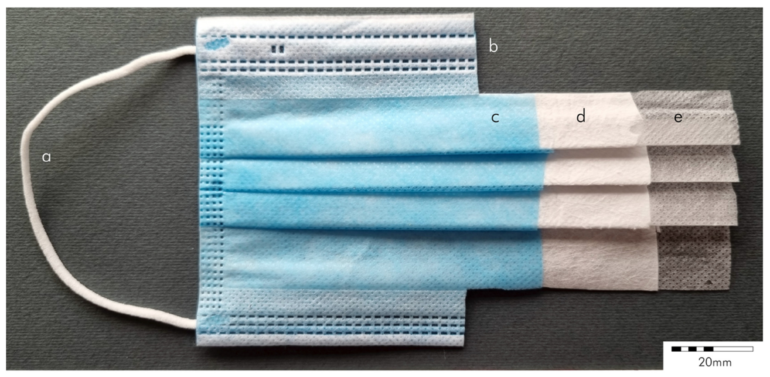The emergence of COVID-19 in early 2020 has led to an increase in medical waste, including used facemasks, which has become a new threat to public health and the environment. Despite being in a post-COVID-19 pandemic world, many countries are still mandating mask-wearing in public to reduce the spread of the virus. However, a large number of these masks, including single-use and multiple-use forms, are made from plastic materials that are long-lasting. As a result, millions of tons of waste have accumulated in landfills across several countries in a short period, posing a danger to the environment.
Improper management such as landfilling and open burning of medical wastes may escalate the risk of spreading COVID-19 and some airborne diseases via secondary transmission. It is necessary to develop strategies to address this issue and find a solution to the problem, which could also help in preparing for the next pandemic if face masks are needed universally.
Researchers from India, Korea and Singapore have developed a straightforward technique to convert used facemasks into porous activated carbon fibrous adsorbents, which can effectively remove CO2 from the air. Fibrous adsorbents possess multiple benefits such as a higher adsorption rate, more adsorption sites, higher adsorption capacity, and ease of handling compared to granular and powdered adsorbents.
The team developed an approach by which a large number of pores, suitable for heavy CO2 adsorption, can be formed on the developed fibers. The surface of the fibers was further modified by amine containing compounds (TEPA) to further enhance the CO2 capture. The adsorbent shows a high absorption capacity and is higher than many contemporary studies. The adsorbed CO2 can be readily regenerated and the adsorbent can be used for several cycles. The regenerated CO2 can be utilized for green fuel, beverages and dry ice based on the purity. The team has parallelly developed graphene foam-based catalyst that can convert CO2 into fuel.
The fibrous adsorbents obtained from the recycled facemasks can also be utilized for separating various dyes from aqueous solutions. The efficiency of the dye removal properties remained above 94% even after nine cycles of adsorption-desorption, suggesting that the porous absorbent has potential applications in treating polluted wastewater that has been discharged from industries such as textiles and leathers.
The team of scientists was led by researcher Associate Professor Sunanda Roy (Alliance University). The work has been published in Carbon.
This is not the first endeavor to recycle waste for creating carbon capture materials. In 2022, Roy and his team achieved success in devising an innovative and uncomplicated method for converting discarded cigarette filters into fibrous absorbent materials that can extract CO2 from the air. The team’s technique has been detailed in ACS Applied Materials & Interfaces. They are actively looking for collaborations and funding to carry out their efforts to the next level.
More information:
Sunanda Roy et al, Pores on Pores: A novel approach to fabricate super adsorbents from used face masks for large CO2 capture and dye removal, Carbon (2023). DOI: 10.1016/j.carbon.2023.02.040
Sunanda Roy et al, From Hazardous Waste to Green Applications: Selective Surface Functionalization of Waste Cigarette Filters for High-Performance Robust Triboelectric Nanogenerators and CO2 Adsorbents, ACS Applied Materials & Interfaces (2022). DOI: 10.1021/acsami.2c06463
Provided by
Newcastle University in Singapore
Citation:
Converting used COVID-19 facemasks into green absorbents for carbon capture (2023, March 21)



